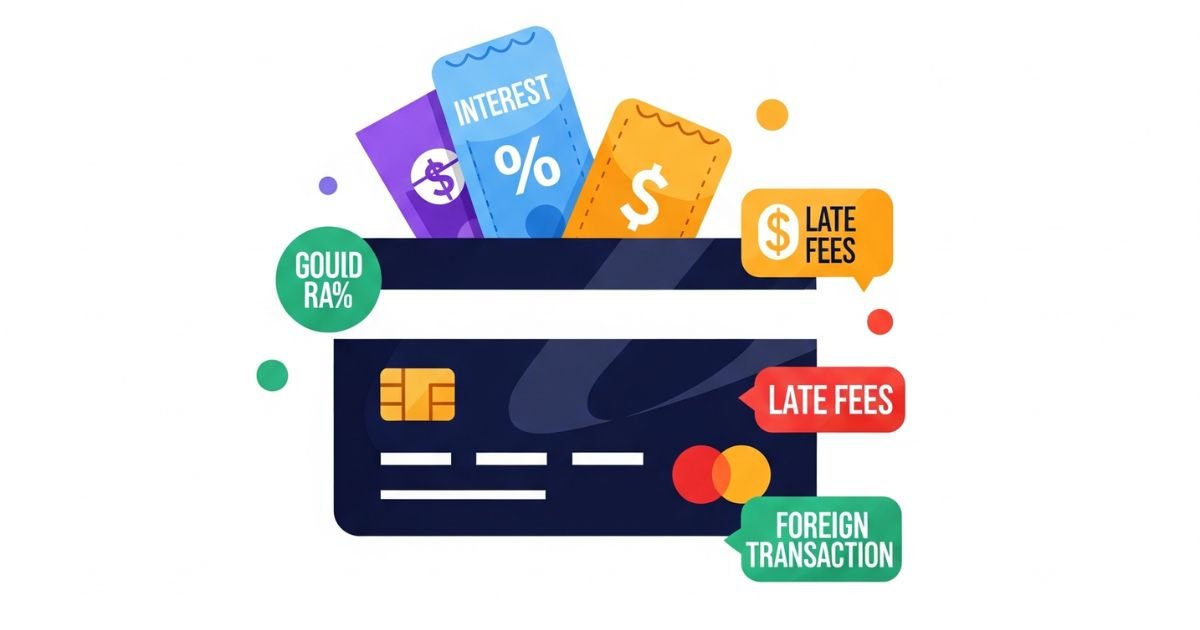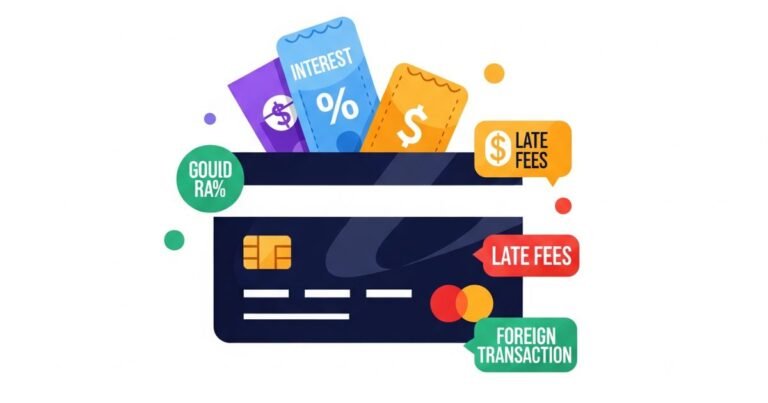
Have you ever checked your credit card statement and spotted a charge that made you scratch your head? You are not alone. Mystery charges can be confusing, annoying, and sometimes even a little scary. But do not worry. Most unknown charges have a simple explanation, and with a little detective work, you can figure out what is going on.
Why Do Mystery Charges Happen?
Unknown charges on your credit card can pop up for many reasons. Some are harmless mistakes, while others might need your immediate attention. The good news? Most of these charges can be explained once you dig a little deeper. Here are the most common culprits behind those puzzling transactions.
Common Reasons for Unfamiliar Charges
- Subscriptions You Forgot About: Signed up for a free trial and forgot to cancel? Streaming services, gym memberships, or even magazine subscriptions often auto-renew, leaving small but regular charges on your statement.
- Pending Transactions: Sometimes, a purchase shows up as a temporary “pending” charge with a generic name, like a merchant code, that does not match the store you visited.
- Pre-Authorization Holds: Gas stations, hotels, or car rental companies may place a temporary hold on your card, which looks like a charge but usually disappears in a few days.
- Fraud or Unauthorized Charges: In rare cases, an unknown charge could signal fraud, like someone using your card without permission.
- Merchant Name Confusion: Some businesses use parent company names or third-party processors, so the charge might not match the store you shopped at.
- Family or Shared Card Charges: If your card is linked to a family member or shared account, someone else is purchase might show up.
A Quick Look at Common Charge Types
| Charge Type | Example Scenario | What to Do |
|---|---|---|
| Subscription | Netflix auto-renewal | Check subscription settings |
| Pre-Authorization Hold | $100 hold at a gas station | Wait 3-5 days or call merchant |
| Fraudulent Charge | Unknown $50 charge from another state | Contact your bank immediately |
| Merchant Name Issue | “XYZ Corp” instead of “Local Coffee Shop” | Google the merchant name |
How to Investigate an Unknown Charge
Seeing an unfamiliar charge can feel unsettling, but do not panic. With a few simple steps, you can track down the source and decide what to do next. Here is how to play detective with your credit card statement.
Step 1: Check the Details on Your Statement
Start by looking closely at your credit card statement. Most banks provide details like the date, amount, and merchant name. Sometimes, the merchant name is a clue, even if it does not look familiar at first. For example, a charge from “PP*GOOGLE” might be a Google Play purchase. If your bank offers online banking, log in to see if there are extra details, like a phone number or location for the merchant.
Step 2: Search the Merchant Name
If the merchant name looks like gibberish, copy it into a search engine. Add words like “credit card charge” to narrow down results. For instance, searching “ABC123PAY credit card charge” might reveal that it is a payment processor for a local restaurant. Websites like ChargeLookup or WhatIsThisCharge can also help decode cryptic merchant names.
Step 3: Review Your Recent Activity
Think back to your recent purchases. Did you buy something online, sign up for a trial, or lend your card to someone? Even small transactions, like a $1 app purchase, can show up with unfamiliar names. If you share your card with family or friends, ask them if they made the purchase.
Step 4: Contact the Merchant
If you suspect the charge is legitimate but unclear, call the merchant. Most statements include a phone number next to the charge. Explain the situation politely and ask for details about the transaction. They might confirm it was a subscription or a one-time purchase you forgot about.
Step 5: Reach Out to Your Bank
If you cannot figure out the charge or suspect fraud, contact your credit card issuer right away. Most banks have a toll-free number on the back of your card or in your online account. Be ready to provide the transaction date, amount, and merchant name. They can often tell you more about the charge or start a dispute if needed.
What to Do if the Charge is Fraudulent
If you suspect the charge is not yours, act fast to protect your account. Fraudulent charges can happen if your card details are stolen or if someone uses your card without permission. Here is what to do.
- Call Your Bank Immediately: Report the charge to your card issuer. They can freeze your account to prevent more charges and start an investigation.
- Dispute the Charge: Most banks let you dispute charges online or over the phone. Provide as much detail as possible, like why you think the charge is fraudulent.
- Monitor Your Account: Keep an eye on your statements for other suspicious activity. Set up alerts for new transactions if your bank offers this feature.
- Replace Your Card: If fraud is confirmed, ask for a new card with a different number to prevent future issues.
- File a Police Report: For large or repeated fraudulent charges, consider filing a report with your local police for documentation.
Tips to Prevent Mystery Charges in the Future
Once you have resolved the mystery, take steps to avoid surprises down the road. A little caution can go a long way in keeping your credit card statement clear and stress-free.
- Track Subscriptions: Use apps like Rocket Money or Truebill to monitor recurring charges and cancel ones you no longer need.
- Set Up Alerts: Most banks let you set text or email alerts for every transaction. This helps you spot unfamiliar charges right away.
- Use Virtual Cards: Some banks offer virtual card numbers for online shopping. These one-time-use numbers reduce the risk of fraud.
- Check Statements Regularly: Make it a habit to review your credit card statement every month. Catching issues early saves time and hassle.
- Be Cautious with Free Trials: Before signing up, set a reminder to cancel before the trial ends if you do not want to continue.
How Banks Handle Disputed Charges
When you dispute a charge, your bank follows a process to investigate. They will ask for details about the transaction and may contact the merchant. Most disputes are resolved within 30 to 60 days. During this time, the bank might issue a temporary credit to your account. If the charge is found to be legitimate, the credit is reversed. If it is fraudulent, the charge is removed, and your account is protected.
Here is a quick breakdown of the dispute process:
| Step | What Happens | Timeframe |
|---|---|---|
| Report the Charge | You notify the bank of the issue | Immediate |
| Investigation | Bank contacts merchant for details | 10-30 days |
| Resolution | Charge is confirmed or removed | 30-60 days |
FAQs About Mystery Credit Card Charges
Q. How long do I have to dispute a charge?
You typically have 60 days from the statement date to dispute a charge, but this varies by bank. Check with your card issuer for their specific policy.
Q. Can a merchant charge my card without my permission?
Merchants cannot legally charge your card without authorization, but forgotten subscriptions or pre-authorized holds can feel like surprises. Always review terms before signing up for services.
Q. What if I do not recognize a small charge, like $1 or $2?
Small charges are often “test” transactions by fraudsters or subscription trials. Contact your bank immediately to investigate and secure your account.
Conclusion
Mystery charges on your credit card can be a headache, but they are usually easy to resolve with a little effort. By checking your statement, researching merchant names, and contacting your bank, you can uncover the source of most charges. If fraud is the issue, acting quickly protects your money and peace of mind. To avoid future surprises, keep tabs on your subscriptions, set up transaction alerts, and review your statements regularly. With these steps, you will stay in control of your finances and keep those mystery charges at bay.
Disclaimer: This blog is for informational purposes only and does not constitute financial or legal advice. Always consult your bank or a financial professional for guidance on specific credit card issues.
